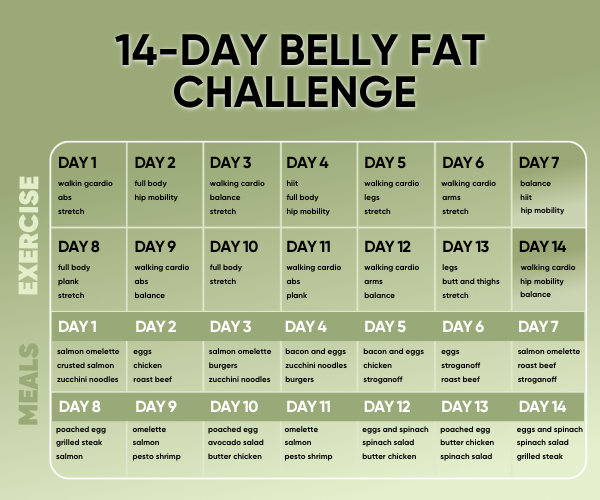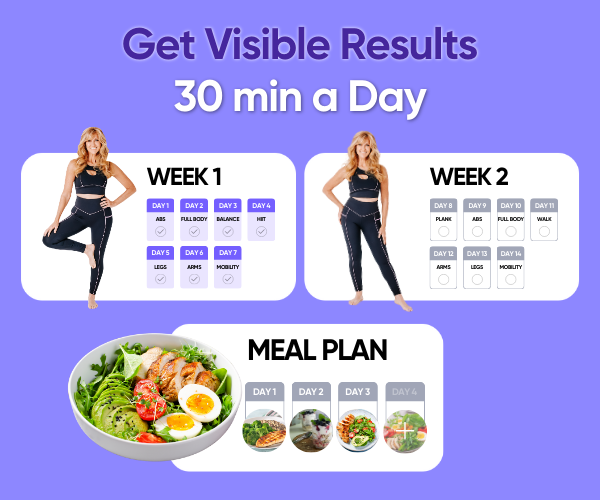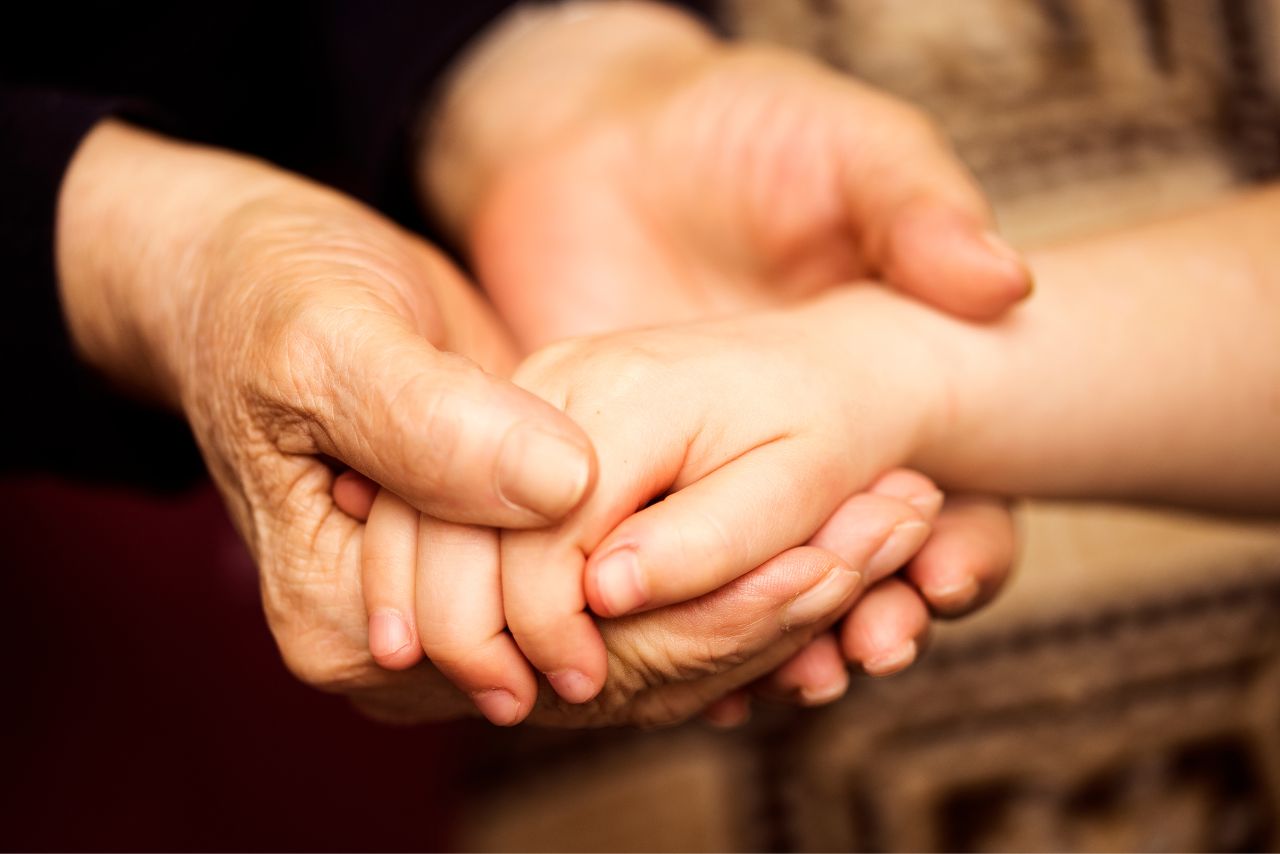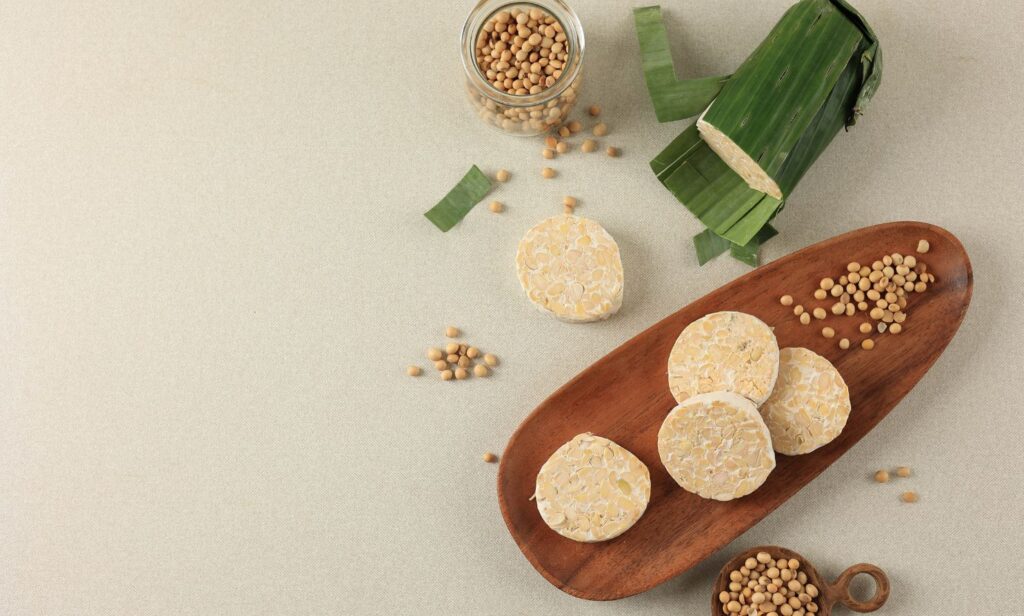
We have heard all sorts of things about whether soy is good or bad for us. Some say soy can have detrimental effects on women’s health, while others believe it can provide numerous benefits
So, what’s the deal? Is soy really bad for women over 50? Well, I know there’s a lot of chatter, but we need to dig into the facts.
It is important to look at the scientific evidence behind these claims about soy consumption in order to make an informed choice.
Let us look at the newest scientific evidence to find out if soy is more likely to be good for or bad for your health if you are a woman over 50.
Soy-Based Foods and Their Nutritional Value for Women Over 50
Soy-based products, such as tofu, tempeh, and soy milk, are not only a great source of phytoestrogens but also offer a variety of essential nutrients for women over 50. These protein-rich foods help maintain muscle and bone mass to support healthy aging.
They contain vitamin B12, iron, and calcium, which may benefit women over 50. These help prevent osteoporosis, which affects women more than men as they age.
Soy-based foods also have a lot of minerals, vitamins, and fiber. Fiber helps the body digest food and can keep you from getting constipated, which is a problem that a lot of older women have.
Soybeans have a lot of isoflavones, which are a type of polyphenol also known as phytoestrogens because they can bind to and turn on estrogen receptors in your body. Soy isoflavones are one reason soy-based foods are said to be healthy.
Soy isoflavones are often thought to be the hormone estrogen because their structures are very similar. One concern that has been raised regarding soy consumption is its potential impact on hormone levels, particularly estrogen. However, current research indicates that moderate soy consumption is unlikely to have adverse effects on hormone levels in postmenopausal women.
It is important to note that not all products made from soy are the same. Some processed soy products, like soy protein isolate and soy protein concentrate, may have fewer phytoestrogens and more additives and preservatives.
Choose processed ones as little as possible, like organic tofu or tempeh, to get the most health benefits from soy products.
The Potential Benefits of Soy for Women Over 50
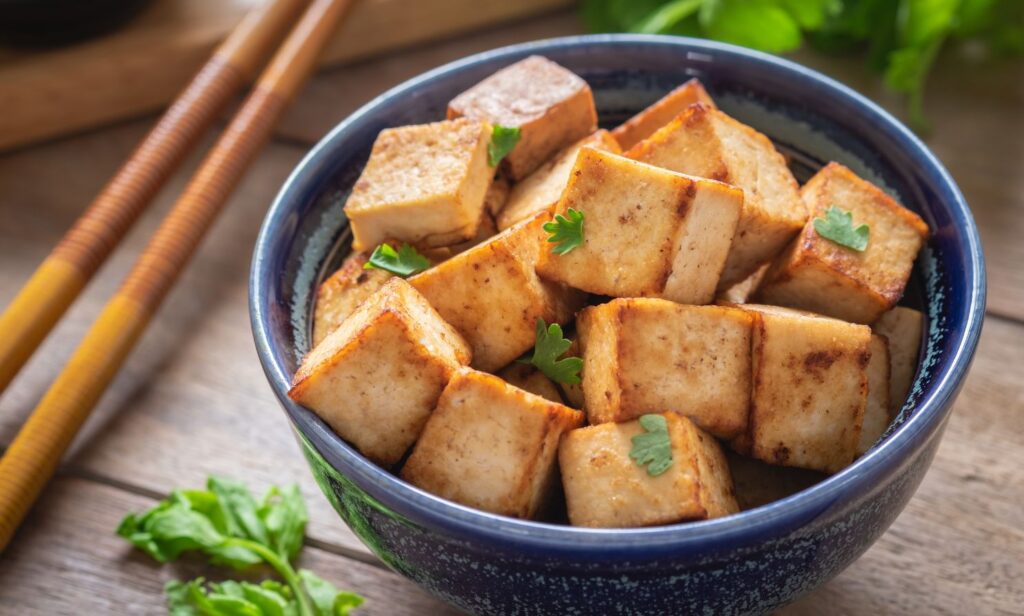
For women over 50, soy may actually have a few benefits, despite what most people think. Phytoestrogens are plant chemicals that work in the body like estrogen. Soy has a lot of them.
Mood swings, hot flashes, and bone loss are just a few of the symptoms that women experience as their estrogen levels naturally drop. Soy’s phytoestrogens, which are a natural source of estrogen, can help ease these symptoms.
Soy has a lot of health benefits for women over 50. Here are some of them:
Heart health
One big benefit of soy for women over 50 is that it is good for their heart health.
A new study finds that diets high in soy are linked to a 20% lower risk of stroke and a 16% lower risk of heart disease. Soy isoflavones may help lower inflammation in blood vessels and make them more flexible, which are both thought to be good for heart health.
A few studies show that eating soy may help lower LDL cholesterol, which is also called “bad” cholesterol. Soy can help lower your risk of heart disease by lowering LDL cholesterol. For older women who are more likely to get heart disease, this is very helpful.
Recent research suggests fermented soy products may protect against cardiovascular disease and cancer, but the American Heart Association said there was not enough evidence in 2008. Other studies have shown that eating a lot of soy products can lower your risk of dying from heart disease.
Bone density
As women get older (50s and up), keeping their bones strong becomes more demanding. It is possible for calcium to leave the bones during menopause because estrogen levels drop. Due to bone loss, postmenopausal women may develop osteoporosis.
Calcium and magnesium are two nutrients that are found in soy that are important for bone health. Eating soy-based foods and other calcium-rich foods on a regular basis can help keep bones strong and lower the risk of getting osteoporosis.
According to some research, giving 40–110 mg of soy isoflavones every day may help menopausal women stop losing bone mass and improve bone health markers.
Further research is needed to confirm these results, though.
Menopausal symptoms
Hormonal changes during menopause cause hot flashes, night sweats, and mood swings. Soy contains phytoestrogens, which mimic estrogen. During menopause, estrogen levels drop, causing fatigue, vaginal dryness, and hot flashes. Soy isoflavones may reduce these symptoms by binding to estrogen receptors.
For example, soy isoflavones may help lower the number and severity of hot flashes, according to research. Soy isoflavones may also help with tiredness, joint pain, depression, irritability, anxiety, and dry genital areas that women may experience during or before menopause.
As a result, eating more soy may help ease some of these menopause symptoms, making you feel better overall.
There are, however, differences between studies that reveal the same benefits. So, more research needs to be done before any firm conclusions can be drawn.
Cancer prevention
Women over 50 are more likely to get some types of cancer, which are sensitive to hormones. According to studies, the phytoestrogens in soy may help protect against these hormone-related cancers. Adding soy to your diet may help protect you from some types of cancer. But more research is needed to fully understand how it works.
Women who have gone through menopause may also lower their risk of getting breast cancer again if they eat a lot of soy before and after being diagnosed. Nevertheless, this research suggests that women before menopause might not get the same benefit.
Soy-rich diets may help both pre- and postmenopausal women have a lower risk of cancer, according to another study.
Studies in women who consume a lot of soy isoflavones have suggested a 19% reduction in the risk of endometrial cancer. Studies have linked soy-heavy diets to a lower risk of gastrointestinal cancers and a lower risk of colorectal and colon cancers, mostly in women.
One recent meta-analysis of 23 trials indicated that the risk of cancer mortality was 12% lower in people who consumed a diet high in soy products. This was especially true for cancers of the stomach, large intestine, and lungs.
Weight management
Age makes weight management harder, but soy-based foods can help. Protein-rich soy promotes fullness and satiety.
Women over 50 can lose weight and eat well by adding soy to their meals and snacks. Some often use soy to replace calorie-dense animal protein. Soy provides protein, fiber, vitamins, and minerals in a balanced diet.
A small study found that on a high-protein, weight-loss diet, soy-based protein and animal protein led to similar weight loss. Thus, soy may aid healthy weight loss as well as animal protein.
Another study found that polycystic ovarian syndrome (PCOS) patients who ate half soy protein lost more weight than those who ate only animal protein. On a low-calorie diet, soy meal replacements helped people lose more weight than milk-based ones.
Common Misconceptions About Soy and its Effects on Women’s Health
There are several common misconceptions about soy and its effects on women’s health.
People often think that soy can make them more likely to get breast cancer, which is not true. However, many studies have shown that eating soy does not raise the risk of breast cancer and may even help protect against it.
According to some studies, women who have already been diagnosed with breast cancer are less likely to get the disease again if they eat soy.
Another common misconception is that soy can hurt the way your thyroid works. A lot of goitrogens in soy can mess up thyroid function, but the amounts in soy that are not harmful are not high enough to be an issue. Not only that, but studies have shown that eating soy does not hurt the thyroid function of healthy people.
Contradictory findings and limitations of soy research
There is a lot of research supporting soy’s benefits for women over 50, but there are also contradictory findings.
According to some studies, soy does not affect menopause symptoms or chronic disease risk. These discrepancies may be due to study design, participant characteristics, or soy dosage.
Another limitation is that animal or laboratory studies, which might not accurately reflect human effects, may limit soy research.
More long-term, large-scale studies are needed to fully understand the potential benefits and risks of soy for women over 50.
Soy’s Effect on Women’s Health: Other Considerations
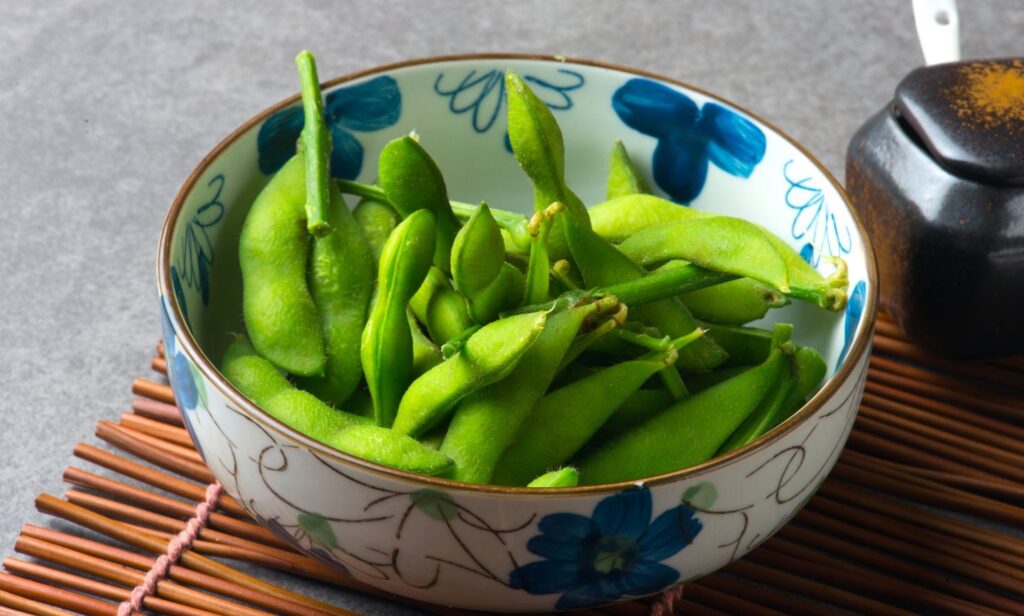
For women over 50, soy consumption has many health benefits, but other factors should be considered.
A well-rounded diet that includes a variety of fruits, vegetables, whole grains, and lean proteins is essential for overall health and well-being.
Lifestyle choices like getting enough sleep, exercising regularly, and dealing with stress can also make a big difference in women’s health as they age.
Another thing to keep in mind is that different people may react differently to soy. Some women may feel better about their menopause symptoms and health in general after eating soy, while others may not notice any big changes.
It’s always best to listen to your body and consult with a healthcare professional before making any major dietary changes.
Recommended soy intake for women over 50
The recommended soy intake for women over 50 depends on the desired health benefits. The general recommendation is 25 grams of soy protein per day. Soy foods like tofu, tempeh, soy milk, and edamame can help.
Since soy supplements may not contain all the beneficial compounds found in whole soy foods, they may not provide the same health benefits.
As with any diet change, consult a doctor to determine soy intake.
Potential risks and precautions of soy consumption
Soy is generally safe to eat, but there are some precautions. Women with soy allergies should avoid it. Soy may interact with thyroid medications, so avoid it.
If you take medications, consult your doctor before eating soy.
Soybeans are often GMOs. Genetically modified soy may have fewer nutrients and more herbicide residues.
Soybeans contain compounds that may reduce vitamin and mineral absorption. You can reduce soy antinutrients by soaking, sprouting, fermenting, and cooking.
In animal studies, soy antinutrients may reduce gut barrier function, causing inflammation and digestive issues.
Remember that even though these risks are common, not all of them are based on science. These bad effects are most common in people who eat a lot of soy.
High-processed soy products, like protein powders or sweetened soy milks, are not as healthy as minimally processed soy foods, such as soybeans, tofu, tempeh, edamame, and unsweetened soy products.
Fermented soy foods like soy sauce, tempeh, miso, and natto are also thought to be better for you because they have fewer antinutrients, which makes it easier for your body to absorb the nutrients in soy.
Alternative Sources of Plant-Based Protein for Women Over 50
You can get protein from plants in a lot of different ways if you do not want to eat soy or want to limit how much you eat. Legumes like black beans, lentils, and chickpeas are good choices because they are high in protein and also high in fiber and other nutrients.
Another great gluten-free source of protein is quinoa, a seed-like grain. You can also get protein from nuts and seeds, like hemp seeds, chia seeds, and almonds.
You can make sure you get all the nutrients you need without relying on soy alone by including a variety of these plant-based protein sources in your diet.
How to include soy in a healthy diet for women over 50
If you decide to add soy to your diet, here are some things you can do to make sure you stay healthy:
Choose whole soy foods. Instead of processed soy foods that may have added chemicals and preservatives, choose natural soy foods like tofu, tempeh, and edamame.
Eat a balance of macronutrients. For a well-rounded meal, eat soy with other foods that are high in nutrients. You should eat a lot of healthy fats, fruits, vegetables, and whole grains.
Listen to your body. Pay close attention to how soy makes your body feel. If you have any bad effects, like stomach problems or allergic reactions, it might be best to limit or stop eating soy.
Variety is key. Do not get all of your protein from soy alone. Make sure you are getting a lot of different nutrients by eating a variety of plant-based protein sources.
Closing Thoughts
The scientific evidence about soy consumption in women over 50 suggests that it can be good for your health and well-being in many ways.
Soy’s phytoestrogens reduce menopause symptoms and the risk of chronic diseases like heart disease and cancer. The most nutritious and phytoestrogen-rich soy foods are tofu and tempeh.
Soy, while beneficial in moderation, has caused dietary confusion due to over-processing, yet evidence suggests that consuming unprocessed forms of soy moderately outweighs associated risks.
It is important to consider individual differences and lifestyle factors when assessing soy’s health effects on women. For good health, soy should be part of a balanced diet and a healthy lifestyle.
The decision to eat soy depends on your health goals, preferences, and health conditions. If you have concerns or questions about soy consumption, it’s always best to consult with a healthcare professional who can provide personalized advice and guidance.
♡ Love ♡,
Schellea
References:
- American Heart Association. (2020). Soy-rich foods like tofu may help lower heart disease risk.
- US Food and Drug Administration. (2002). Health claims: soy protein and risk of coronary heart disease (CHD). 21 CFR 101.82.
- Anderson, J. W., et al. (2005). Weight loss and lipid changes with low-energy diets. Journal of the American College of Nutrition.
- Canadian Cancer Society. (2023). Eating well after breast cancer.
- Cui C, Birru RL, Snitz BE, et al. (2020). Effects of soy isoflavones on cognitive function: a systematic review and meta-analysis of randomized controlled trials.
- Miho Nozue, Taichi Shimazu. (2021). Fermented soy products intake and risk of cardiovascular disease and total cancer incidence. EJCN.
- JNCI Cancer Spectrum (2024). Phytonutrients and outcomes following breast cancer: a systematic review and meta-analysis of observational studies
- Kristin J Speaker, et al. (2023). Effects of consuming a high protein diet with or without soy protein during weight loss and maintenance; a non‐inferiority, randomized clinical efficacy trial. ResearchGate.
- Healthline. Is Eating Soy Healthy or Unhealthy?
- MaryGrace Taylor, Kate Rockwood. (2022). Is Soy Good or Bad for You? Here’s What Our Experts Say.

